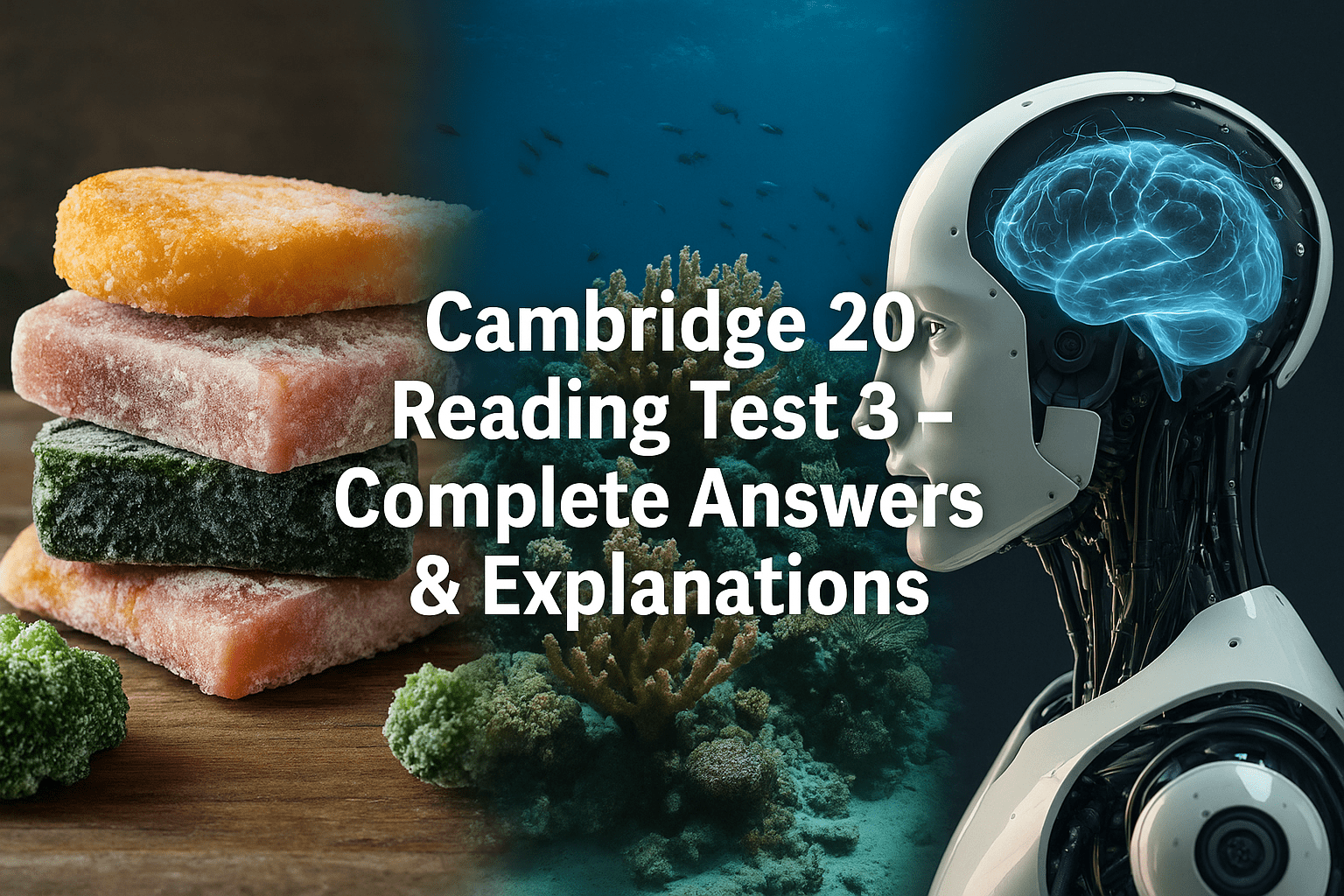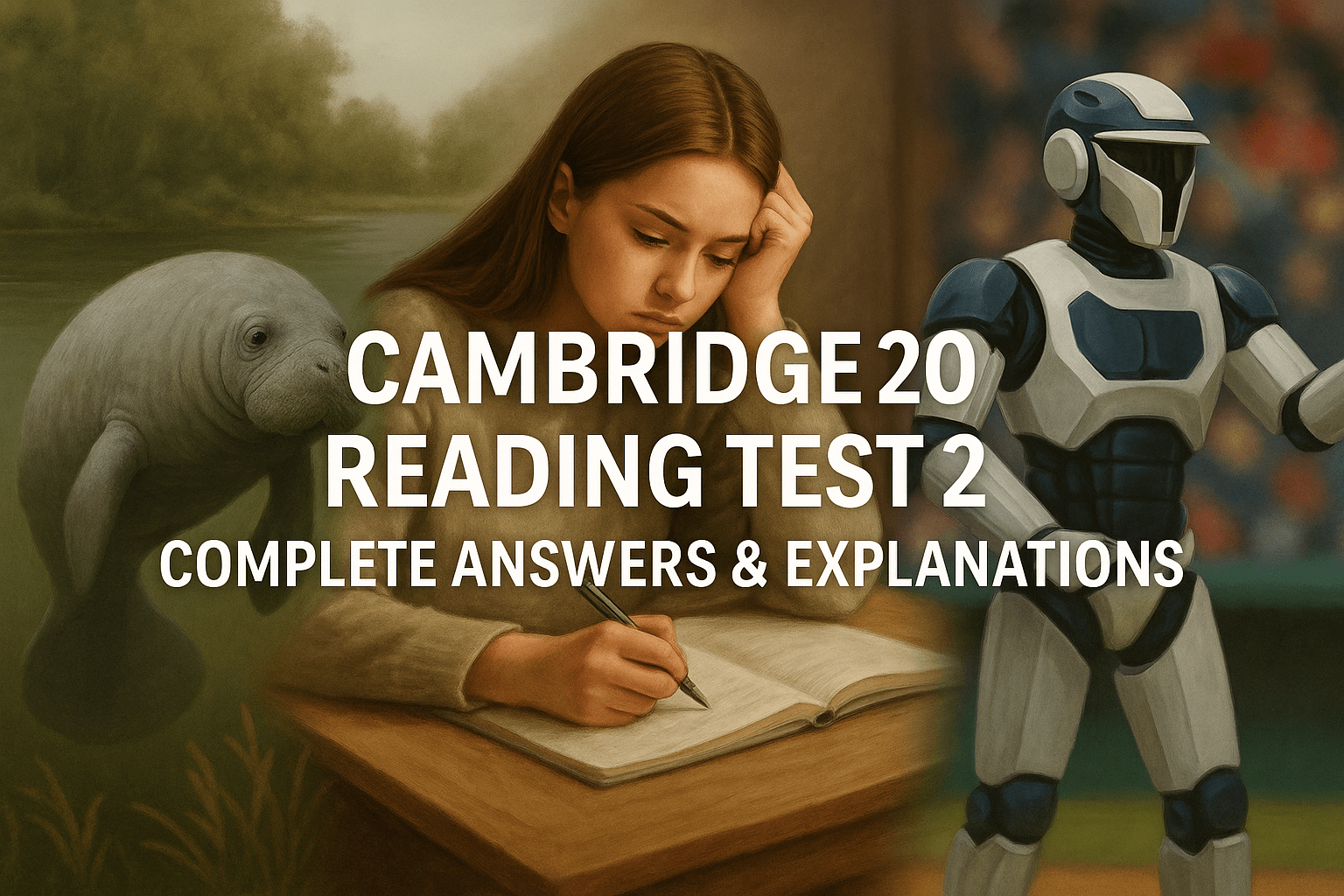Overview
Welcome back, IELTS ZONE learners! You’ve made it to Passage 3 of Cambridge IELTS 19 Reading Test 1 — “The persistence and peril of misinformation”. This passage dives into psychology, philosophy, and the media — so stay focused, and let’s tackle it together.
My Personal Strategy
Before I even read the first question, I skimmed the whole passage. I usually spend about 2 to 2.5 minutes on this part — just like we recommend in our Complete IELTS Reading Guide. Since Passage 3 is often the most complex and time-consuming, I allow up to 22 to 25 minutes total for reading, answering, and reviewing — which is right in line with the official timing strategy we teach on our IELTS Reading Overview Page.
Key names like Descartes, Spinoza, FDA, misinformation, and ‘fake news’ gave me a sense of where major ideas were discussed and helped me mentally map out the structure.
Now let’s break down each question type step-by-step.
Description
Questions 27–30: Multiple Choice
- What point does the writer make about misinformation in the first paragraph?
I went straight to the first paragraph. It says misinformation has always existed and has many causes, such as strategic advantage or preserving bonds. That matches best with:
Answer: D – There may be a number of reasons for the spread of misinformation. - What does the writer say about the role of technology?
Paragraph 2 talks about the risk of widespread misinformation but also how those same communication tools might offer a solution.
Answer: A – It may at some point provide us with a solution to misinformation. - What is the writer doing in the fourth paragraph?
This paragraph lays out three key observations — belief in misinformation, lack of blocking, and difficulty in correction. That’s clearly outlining major issues.
Answer: C – Outlining which issues connected with misinformation are significant today. - What point does the writer make about regulation in the USA?
The passage explains that organizations like the FDA focus on post-event reporting and cannot prevent misinformation from appearing.
Answer: D – Regulation fails to prevent misinformation from appearing in the media.
Questions 31–36: Summary Completion
- G – frequent exposure
It begins by saying people have frequent exposure to misinformation. - J – different ideas
Descartes and Spinoza had different ideas about truth-checking. - H – mental operation
Spinoza believed in a two-step mental operation — initial belief, then checking. - B – additional evidence
Recent studies provide additional evidence for Spinoza’s view. - E – short period
It says people accept information as true even if only momentarily. That’s a short period. - C – different locations
It states that skepticism and information encoding use different parts of the brain — so, different locations.
Answers: 31. G, 32. J, 33. H, 34. B, 35. E, 36. C
Questions 37–40: YES / NO / NOT GIVEN
- Campaigns designed to correct misinformation will fail to achieve their purpose if people are unable to understand them.
Paragraph 6 says that for corrective campaigns to work, people must comprehend them. Otherwise, they won’t be persuasive. Answer: YES - Attempts to teach elementary school students about misinformation have been opposed.
The passage does suggest teaching media literacy early but says nothing about opposition. Answer: NOT GIVEN - It may be possible to overcome the problem of misinformation in a relatively short period.
Paragraph 7 describes this as a long and arduous journey. Definitely not short. Answer: NO - The need to keep up with new information is hugely exaggerated in today’s world.
There is no mention of this idea anywhere in the text. Answer: NOT GIVEN
Examiner Traps and How to Outsmart Them
This passage is abstract — lots of philosophical terms, research studies, and subtle contrasts. Many answer options sounded similar, but the keywords (like “short period,” “fail,” or “regulation”) helped confirm the writer’s point.Watch out especially for NOT GIVEN traps — they often give an opinion that seems logical but isn’t stated.
My Final Takeaway
You’ve officially completed all three passages in Cambridge IELTS 19 Reading Test 1. 🎉 This one tested deeper critical reading, so if you handled this, you’re making real Band 8+ progress.If you missed the first two, go back to: 👉 Passage 1
👉 Passage 2
Next step? Challenge yourself with another test or practice one tricky question type with Reading Question Types Guide or head to our IELTS Reading Practice Tests page.





